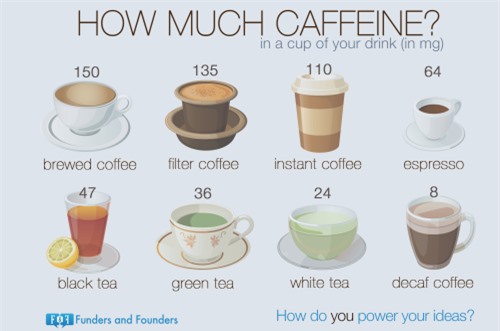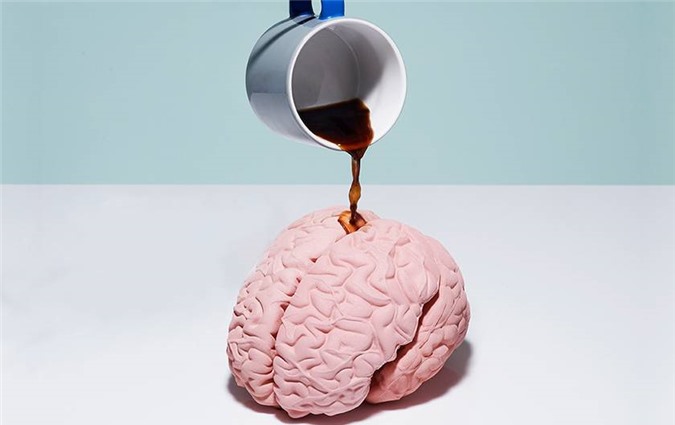8 unfortunate misconceptions about caffeine
Not everyone knows the truth about caffeine, even those who drink coffee regularly. Let's take a look at some of the misconceptions that many people have when thinking about caffeine.
» Priest Nguyen Dinh Thuc incited parishioners
People often think of coffee and tea as the two most common sources of caffeine. But did you know that kola nuts and cacao beans are also considered to be some of the most common sources of caffeine?
And did you know that the amount of caffeine can vary between foods, depending on the type and serving size of the food/drink and how it is prepared?
Caffeine can range from 160mg in some energy drinks to just 4mg in a serving of chocolate. And even decaf coffee will still contain some caffeine. Caffeine is also found in some over-the-counter pain relievers, cold medicines, and some diet pills. These can contain anywhere from 16mg to 200mg of caffeine. In fact, caffeine itself is a mild pain reliever and can increase the effectiveness of other pain relievers.
 |
Myth #1: Caffeine is an addictive substance
Caffeine is a central nervous system stimulant. Regular use of caffeine can cause mild physical dependence. But caffeine does not threaten physical, social, or economic health in the way that other addictive drugs do.
If you regularly drink two or more cups of coffee a day and suddenly stop using caffeine, your body may experience some symptoms that last for a few days. Symptoms of caffeine withdrawal include: Headache, fatigue, anxiety, irritability, moodiness, difficulty concentrating.
There's no doubt that caffeine cravings can ruin your day. However, caffeine doesn't cause severe cravings or drug-seeking behaviors (like alcoholism or drug addiction). For this reason, many experts don't consider caffeine dependence to be an addiction.
 |
Myth #2: Caffeine is linked to insomnia
The body absorbs caffeine very quickly. But the body also eliminates caffeine as quickly as it absorbs it. This process occurs mainly in the liver, the half-life of caffeine is relatively short, on average, it only takes the body about 5-7 hours to eliminate half of the absorbed caffeine. After 8-10 hours, 75% of the caffeine has been eliminated. For most people, one or two cups of coffee in the morning will not affect sleep at night.
However, consuming caffeine late in the afternoon may affect your sleep. Your sleep will not be affected by caffeine if you consume it at least 6 hours before bedtime. However, sensitivity varies from person to person, depending on your metabolism and how much caffeine you regularly consume. People who are very sensitive may not only experience insomnia but also other unwanted effects of caffeine on the nervous system and digestive system.
Myth #3: Caffeine increases the risk of osteoporosis, heart disease, and cancer
Consuming a moderate amount of caffeine a day (about 300mg, equivalent to 3 cups of coffee) will not cause any harm in most healthy adults. However, some people are more susceptible to the effects of caffeine. These include people with high blood pressure or the elderly. Specifically:
Osteoporosis and caffeine: At high doses (above 744 mg/day), caffeine can increase the urinary excretion of calcium and magnesium. However, recent studies have shown that this does not increase the risk of osteoporosis, especially if you get enough calcium. You can adjust for the calcium loss caused by drinking coffee by adding 2 tablespoons of milk to your coffee. However, research has also shown some links between caffeine and the risk of hip fractures in older people. Older people may be more sensitive to the effects of caffeine on calcium metabolism. If you are an older woman, talk to your health care provider about whether you should limit your caffeine intake to less than 300 mg per day.
Heart disease and caffeine: In people who are sensitive to caffeine, heart rate and blood pressure often increase slightly after consuming caffeine. However, many large studies have shown no link between caffeine and increased blood lipids, abnormal heart rhythms, or increased risk of heart disease. However, if you have high blood pressure or heart disease, you should talk to your doctor about how much caffeine you can consume. You may be sensitive to the effects of caffeine. More research is needed to see if caffeine increases the risk of stroke in people with high blood pressure.
Cancer and caffeine: A review of 13 studies involving over 20,000 people found no link between cancer and caffeine. In fact, caffeine may even have a protective effect against some cancers.
Myth #4: Caffeine is bad for women who are trying to get pregnant
Many studies have shown that there is no association between consuming small amounts of caffeine (one cup/day) and the following conditions: Difficulty conceiving, miscarriage, birth defects, premature birth, or low birth weight.
However, for women who are trying to conceive, the recommended dose of caffeine is less than 200mg/day. This is because in some studies, if women consume large amounts of caffeine, it may increase the risk of miscarriage.
 |
Myth #5: Caffeine is dehydrating
Caffeine can make you need to urinate. However, the amount of fluid you drink in caffeinated beverages can usually replace the amount of fluid you lose through urination. The bottom line is that although caffeine acts as a mild diuretic, studies show that moderate consumption of caffeinated beverages does not actually cause dehydration.
Myth #6: Caffeine is bad for children because they consume even more than adults
As of 2004, American children aged 6-9 consumed about 22 mg of caffeine per day, which is within the recommended daily intake. However, energy drinks can contain a lot of caffeine, and they are becoming more popular. Therefore, children's caffeine intake may be increasing.
Some children are sensitive to caffeine and may experience temporary anxiety or irritability after consuming caffeine. Most of the caffeine children consume comes from soda, energy drinks, or sweet tea. These drinks are high in sugar and empty calories, which can put children at a higher risk of obesity. So, while caffeine itself is not harmful to children, caffeinated drinks are generally not good for young children.
Myth #7: Caffeine can sober you up
In fact, studies show that people only think caffeine helps them sober up. For example, people who drink coffee and alcohol think they can drive. But the truth is that reaction time and judgment are still affected. High school students who drink both caffeine and alcohol are even at higher risk of car accidents.
Myth #8: Caffeine has no health benefits
Caffeine has been shown to have many health benefits. But the hidden benefits of caffeine may surprise you. Anyone who regularly drinks coffee will tell you that caffeine increases alertness, concentration, energy, and reduces headaches. Scientific studies also support these results. Only one study in France found mild cognitive impairment in women who consumed caffeine.
Other benefits of caffeine include relief of certain types of headaches. Some asthmatics may also find caffeine helpful. Some studies have shown that caffeine may reduce the risk of the following diseases (although the evidence is limited): Parkinson's disease, liver disease, colorectal cancer, type 2 diabetes, dementia.
According to Health & Life
| RELATED NEWS |
|---|




